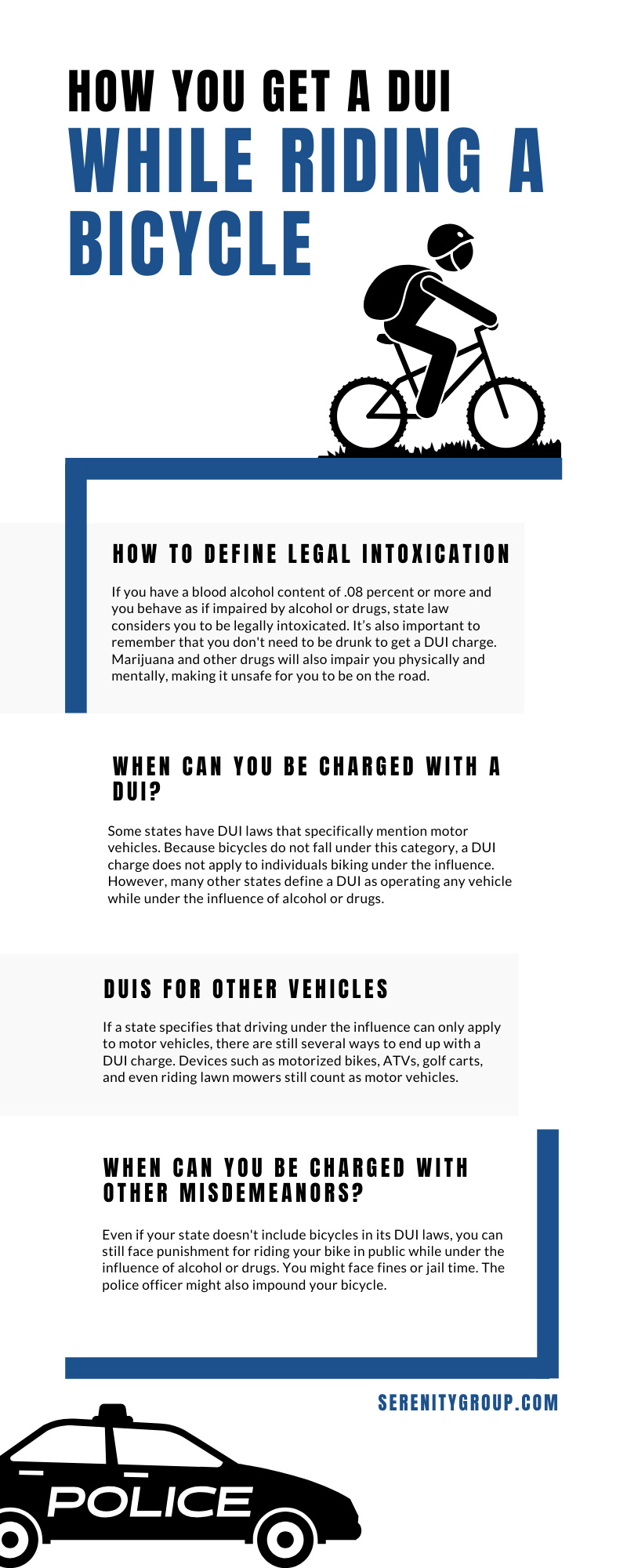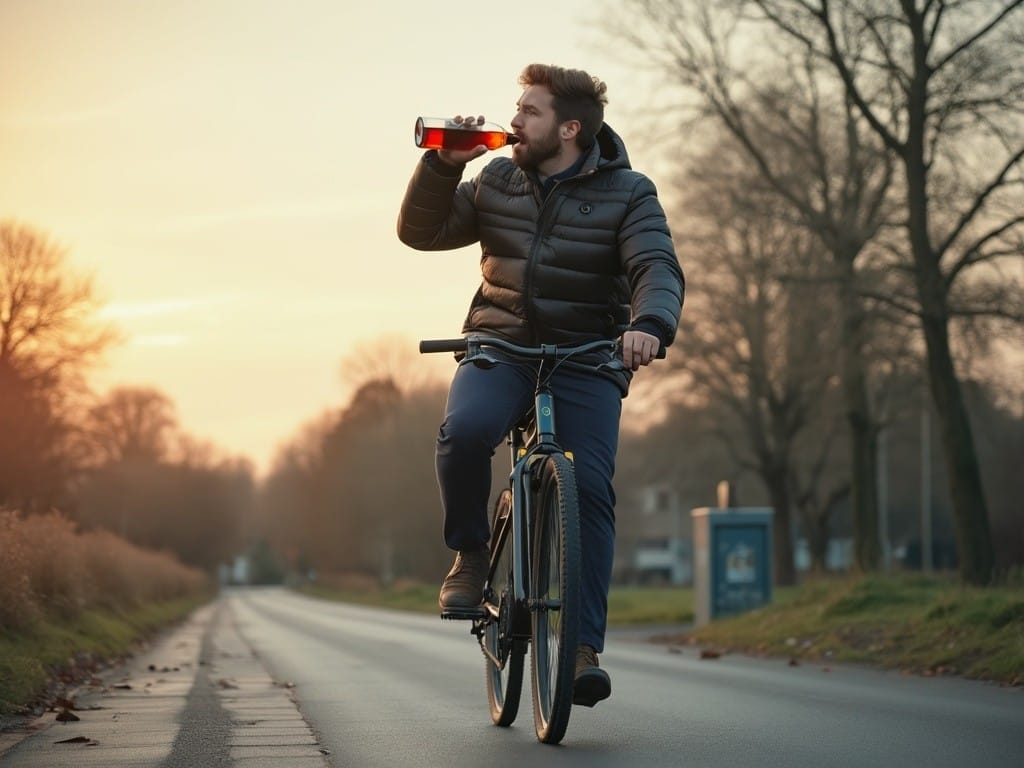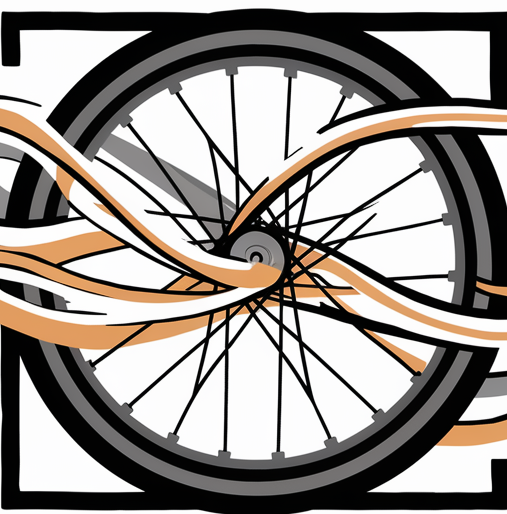Yes, you can get a DUI on a bicycle in several states. Surprisingly, riding a bike under the influence is illegal in many parts of the U.S. Understanding DUI laws for cyclists is crucial.
Biking while impaired can lead to serious consequences. Some states treat this offense similarly to driving a car drunk. The laws aim to keep all road users safe, including cyclists. Knowing where you can face charges helps you stay informed and avoid legal trouble.
This post will explore various states’ laws regarding DUIs on bicycles, helping you understand what you might face if caught biking under the influence. Whether you cycle for fun or transport, it’s important to know these rules. Let’s dive into the details to keep you pedaling safely and legally.
Cycling And Dui Laws
Cycling under the influence is illegal in many states. California, Oregon, and Washington enforce DUI laws for cyclists. Riding a bike while drunk can lead to fines and legal consequences.
Cycling and DUI laws can be a bit surprising. Many cyclists assume that because they’re not driving a car, they’re exempt from DUI regulations. However, this isn’t always the case. Riding a bike under the influence can have serious legal consequences in many states.Legal Implications For Cyclists
Getting a DUI on a bicycle might sound odd, but it’s a reality in several states. Cyclists, like drivers, are subject to the rules of the road, including those about drinking and cycling. A DUI on a bike can impact your driving record, lead to fines, or even result in jail time. Imagine riding home from a party, feeling the cool breeze and thinking you’re safe on two wheels. But then, you’re stopped by the police and tested for alcohol. The shock of getting a DUI while cycling can be a wake-up call. Are you aware of the risks you take when cycling under the influence? Understanding the legal implications can help you make safer choices.State-specific Regulations
In some states, bicycles are considered vehicles, and cyclists can be charged with a DUI just like motorists. States like California and Washington have strict laws against cycling under the influence. In California, for instance, a cyclist can be fined up to $250 for a DUI. While it might seem less severe than a DUI in a car, the record still reflects on your driving history. On the other hand, some states, like South Dakota, do not impose DUI laws on cyclists. However, this doesn’t mean you’re free from consequences. You might face other charges like public intoxication. How well do you know your state’s regulations? Checking your local laws can prevent unexpected legal troubles. Being informed about cycling and DUI laws can protect you on your next ride. Make sure you’re not only enjoying your cycling journey but also doing it legally and safely.
Credit: www.coastalvirginialaw.com
Understanding Dui On Bicycles
Cycling while intoxicated is illegal in many states. States like California, Colorado, and Washington enforce DUI laws on bicycles. Understanding local laws can prevent unexpected fines and legal issues.
Understanding DUI on Bicycles You might think of a DUI as something that only happens with cars, but did you know you can get one on a bicycle too? Many states in the U.S. treat cycling under the influence seriously. As cycling becomes more popular, understanding the laws around it is crucial for your safety and legal well-being. ###Definition Of Dui For Cyclists
A DUI stands for “driving under the influence.” For cyclists, it means riding a bicycle while impaired by alcohol or drugs. The legal threshold for impairment can vary from state to state. In some places, the same blood alcohol concentration (BAC) limits that apply to drivers also apply to cyclists. Imagine pedaling home after a few drinks, only to find yourself facing similar penalties as if you were driving a car. It’s an unexpected reality for many. ###Common Misconceptions
A common misconception is that bicycles are excluded from DUI laws because they are non-motorized. However, most states classify bicycles as vehicles, meaning the same rules apply. Another misconception is that you are safer on a bike if impaired. While it might seem less risky, impaired cycling can still lead to accidents and injuries. Have you ever thought about how a simple fall could impact your life? The consequences might surprise you. Many believe DUI penalties are less severe for cyclists, but this isn’t always the case. Fines, community service, and even jail time can be imposed. Knowing the truth about these misconceptions might make you think twice before hopping on your bike after a few drinks. Understanding these aspects can not only keep you safe but also help avoid legal troubles. So, next time you’re out for a ride, remember these insights. Your safety, and perhaps your wallet, might depend on it.States Allowing Bicycle Dui
Riding a bicycle while under the influence can lead to serious consequences. Some states treat biking under the influence like driving. This means you can face a DUI charge on a bicycle. Understanding where this applies is crucial for cyclists.
List Of States With Bicycle Dui Laws
Many states have laws for bicycle DUI. California considers riding a bike under the influence a crime. Washington applies DUI rules to cyclists too. In Oregon, biking drunk can lead to fines. Colorado and Utah also enforce bicycle DUI regulations. These states aim to keep roads safe.
Examples Of Enforcement
Police in California actively check cyclists for signs of intoxication. They conduct sobriety tests on bikers. In Washington, officers watch for swerving or erratic biking. Oregon law enforcement stops cyclists who appear impaired. Colorado police issue warnings and fines to drunken bikers. Utah enforces bicycle DUI during events or festivals.

Credit: serenitygroup.com
Consequences Of Bicycle Dui
Bicycling under the influence might seem harmless. But it carries serious consequences. Many states enforce strict laws against cycling while intoxicated. The repercussions affect various aspects of life. Understanding these consequences can help avoid legal troubles.
Legal Penalties
Facing a DUI on a bicycle involves legal penalties. Offenders may receive fines similar to those for driving a car under the influence. Court appearances become mandatory. Legal records reflect the offense, affecting future opportunities. Community service is often required. Jail time might be an option for repeat offenders.
Impact On Cycling Privileges
Getting a DUI impacts cycling privileges. Cyclists may lose access to certain paths. Local authorities might restrict cycling in public areas. The bicycle could be impounded temporarily. Restrictions on participating in cycling events could apply. Cycling licenses, if present, may face suspension.
Safety Concerns And Risks
Cycling under the influence poses serious safety risks. Many U. S. states, including California and Florida, enforce DUI laws for bicycles. Riders face legal consequences and increased accident risk.
Riding a bicycle is often seen as a fun and eco-friendly way to get around. However, when alcohol enters the mix, it can become a risky venture. Unlike driving a car, cycling might seem harmless even if you’ve had a few drinks. But the truth is, the dangers are real and can lead to serious accidents or even fatalities. Understanding the safety concerns and risks associated with cycling under the influence is crucial for your well-being and that of others.Hazards Of Cycling Under Influence
Cycling requires balance, quick reactions, and sharp awareness of your surroundings. Alcohol impairs all of these essential skills. You might think you’re fine, but your ability to judge distances and react to sudden obstacles is significantly reduced. This could lead to collisions with vehicles, pedestrians, or even stationary objects. Imagine weaving through traffic with impaired judgment. The risk of veering into the path of a car or misjudging the speed of oncoming vehicles is high. Your coordination suffers, making it harder to control your bike. It’s not just about you—other road users are put at risk too.Statistics On Bicycle Accidents
Statistics paint a sobering picture of the risks involved. In the United States, the National Highway Traffic Safety Administration (NHTSA) reports that hundreds of cyclists die annually in traffic accidents. A significant portion of these incidents involve alcohol consumption. Consider this: a study found that nearly a quarter of cyclists killed in traffic crashes had a blood alcohol concentration (BAC) above the legal limit for drivers. Such numbers highlight the critical need for awareness and precaution. Have you ever wondered how a simple decision, like cycling sober, could save a life? It’s worth thinking about. Making safe choices isn’t just about avoiding legal trouble—it’s about safeguarding your future and the lives of those around you. Taking responsibility for your safety means recognizing the hazards of cycling under the influence. It involves understanding the statistics and learning from them. By doing so, you contribute to a safer environment for everyone.Legal Defense Strategies
Cyclists can face DUI charges in several states, including California, Florida, and Oregon. Riding a bicycle under the influence is illegal. Legal defense strategies can help navigate these complex laws effectively.
Navigating the legal waters after receiving a DUI on a bicycle can be daunting. Many cyclists are unaware that they can face similar consequences as motor vehicle drivers when it comes to DUI laws. Understanding effective legal defense strategies is crucial. By arming yourself with the right knowledge and support, you can tackle these charges head-on and potentially minimize the impact.Common Defenses For Cyclists
When accused of a DUI on a bicycle, you might wonder about your options. One common defense is questioning the accuracy of the sobriety tests. Were the tests administered correctly? Another approach could be proving that the riding wasn’t reckless or dangerous to others. This defense focuses on whether your cycling actually posed a threat. Consider the environment and circumstances when the incident occurred. Was there poor visibility or unexpected road conditions? These factors can sometimes strengthen your case.Hiring Legal Representation
Facing a DUI charge on a bicycle might seem less severe than in a vehicle, but it can still carry significant consequences. Hiring an experienced attorney can be invaluable. A good lawyer can evaluate the specifics of your case and suggest tailored defense strategies. They can also guide you through the legal process, ensuring you understand each step. Think of it as investing in your peace of mind. Wouldn’t you want the best possible outcome? An attorney can help you navigate the complexities of the legal system, potentially reducing penalties or even getting charges dropped. Remember, being proactive and informed can make a significant difference. Have you ever faced legal challenges before? How did you handle them? Your experience could shape how you approach this situation.Preventive Measures
Riding a bicycle can be a fun way to get around. But cycling while under the influence (DUI) is illegal in many states. Prevention is key to staying safe and legal. Here are some measures to help avoid getting a DUI on a bicycle.
Tips For Safe Cycling
Always wear a helmet. Helmets protect your head in case of falls. Use lights and reflectors on your bike. They make you visible at night. Follow traffic laws. Stop at red lights and stop signs. Ride in bike lanes when available. They are safer than roads. Avoid busy streets. Choose less crowded paths for cycling.
Alternatives To Riding Under Influence
If you plan to drink, leave your bike at home. Call a cab or rideshare service. They are safer options. Ask a sober friend for a ride. Friends can help you get home safely. Use public transport. Buses and trains are good choices. Sleep over at a friend’s place if you can. It’s better than risking a DUI.
Future Of Bicycle Dui Laws
The future of bicycle DUI laws is evolving across the United States. As biking becomes more popular, legal systems are updating their regulations. This change aims to ensure safety for all road users. Understanding these developments can help cyclists stay informed and safe.
Trends In Legislation
States are re-evaluating their DUI laws related to bicycles. Some states treat bicycles like motor vehicles for DUI offenses. Others have separate laws for cyclists. These changes reflect growing concerns about road safety. Lawmakers aim to create consistent and fair regulations. They consider the impact of alcohol on cyclists’ ability to ride safely.
Advocacy And Public Awareness
Advocacy groups play a key role in shaping bicycle DUI laws. They work to educate the public about safe cycling. These groups push for clear and fair legislation. Public awareness campaigns highlight the dangers of cycling under the influence. They encourage responsible behavior among cyclists.
Raising awareness about bicycle DUI laws helps prevent accidents. It also supports safe and enjoyable cycling experiences for everyone.

Credit: torronelaw.com
Frequently Asked Questions
In What States Can You Get Dui On A Bike?
You can get a DUI on a bike in states like California, Colorado, and Washington. Check local laws for specifics.
Can You Get A Dwi In Mn On A Bike?
Yes, you can get a DWI in Minnesota on a bike. Minnesota law prohibits biking while intoxicated.
Can You Get A Dwi In Texas While Riding A Bicycle?
Yes, you can get a DWI in Texas while riding a bicycle. Texas law considers bicycles as vehicles. Riding a bicycle intoxicated can lead to a DWI charge. Always prioritize safety and follow traffic laws to avoid legal issues.
What Are The Penalties For Dui On A Bicycle?
Penalties for DUI on a bicycle vary by state. They can include fines, community service, or even jail time.
Conclusion
Riding a bicycle while intoxicated can have serious consequences. Laws vary by state. Some states treat biking under the influence like driving a car. You can face fines, penalties, and even jail time. It’s important to know your state’s laws.
Always choose safety over risk. Avoid biking if you’ve been drinking. Make responsible choices to keep yourself and others safe. Stay informed and ride responsibly.



